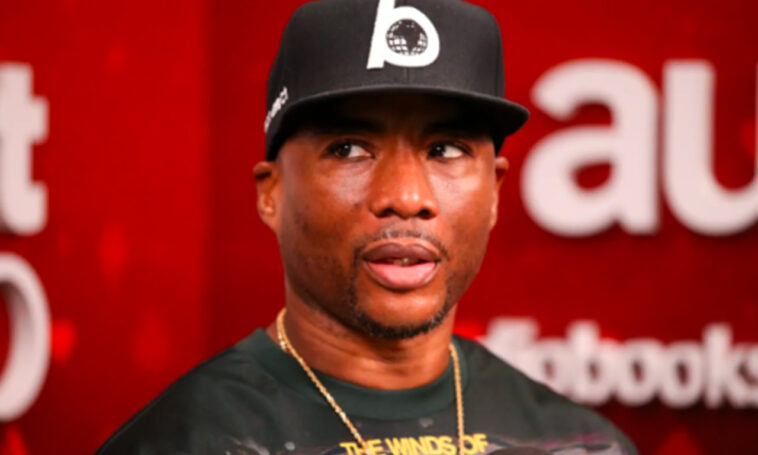Charlamagne Tha God recently criticized CNN for its coverage of Donald Trump during an appearance on Anderson Cooper’s show, AC360. He expressed frustration over the media’s failure to label Trump accurately, particularly in light of his controversial rhetoric. Charlamagne supported Vice President Kamala Harris’s characterization of Trump as a “fascist” and argued that the public should take such statements seriously. He emphasized that discussions around Trump’s actions should take precedence over less critical topics. The heated exchange highlighted ongoing debates about media responsibility in political coverage and the implications for democracy.
Charlamagne Tha God, the well-known host of “The Breakfast Club,” has made headlines with his recent critique of CNN’s coverage of Donald Trump. During an interview with Anderson Cooper on October 24, Charlamagne discussed the upcoming political contest between Vice President Kamala Harris and Trump. He did not hold back in expressing his discontent with how the media covers Trump, particularly regarding his controversial statements.
The segment included a notable moment where Charlamagne supported Harris’s description of Trump as “a fascist.” He argued that such labels should not be taken lightly. Cooper attempted to shift the focus to Trump’s planned appearance on Joe Rogan’s podcast, but Charlamagne resisted, insisting that the more pressing issue was how CNN and other media outlets have failed to adequately address Trump’s actions and statements.
Charlamagne stated, “I think that she should keep calling Donald Trump a fascist. And I think that Americans need to keep looking at the rhetoric of Donald Trump.”
He expressed confusion over why the nation is even considering electing someone who discusses extreme measures like putting people in camps and mass deportation. This strong stance resonated with many viewers, emphasizing the importance of addressing such serious allegations against Trump.
In his critique, Charlamagne highlighted a double standard in media coverage. He pointed out that while the nation discusses the actions of athletes like Colin Kaepernick—who faced backlash for kneeling during the national anthem—Trump’s rhetoric seems to go unchecked. He stated, “I don’t know why we’re having this conversation about somebody who wants to terminate the constitution to overthrow the results of an election.”
Cooper, taken aback by Charlamagne’s remarks, attempted to steer the discussion back to Trump’s appearance on the Rogan podcast, arguing that it could significantly impact the upcoming election. However, Charlamagne maintained that labeling Trump as a fascist is far more critical than discussing his media appearances.
Charlamagne argued that despite CNN’s claims of discussing Trump’s behavior, the coverage has not been sufficient. “I feel like I heard more on this network about ‘Is Kamala Harris Black?’ than I do about Donald Trump being a fascist. Am I wrong?” This statement challenged CNN’s commitment to holding Trump accountable and sparked a lively debate about media priorities.
Cooper responded, insisting that CNN has extensively covered Trump’s behavior and described it as fascist. Yet, Charlamagne was unconvinced. He asserted that the network has not been honest about Trump since 2016. “Nobody has had honest conversations about Donald Trump since 2016,” he said, expressing frustration over the perceived leniency given to Trump compared to other political figures.
The exchange between the two raised important questions about media responsibility in today’s political climate. Charlamagne’s blunt remarks have garnered attention, especially given the current divisive nature of American politics. His passionate defense of Harris’s characterization of Trump reflects a broader concern about the normalization of extremist rhetoric in political discourse.
Charlamagne’s criticism is part of a larger narrative regarding the role of media in shaping public perception. As discussions continue about the importance of accountability in journalism, his appearance on CNN serves as a reminder that viewers expect more than superficial coverage of critical issues. The implications of Trump’s rhetoric go beyond entertainment and directly impact the political landscape and the perception of democracy.
As the political scene evolves, the question remains: how will media outlets adapt to these challenges? Charlamagne’s remarks may encourage audiences to demand more substantial conversations about the implications of political statements and actions. His appearance not only highlights the challenges faced by journalists but also the responsibility they hold in addressing issues that matter to the public.
Charlamagne Tha God’s recent critique of CNN sheds light on ongoing concerns regarding political coverage in media. His insistence on recognizing the seriousness of Trump’s rhetoric challenges both journalists and audiences to reconsider their perspectives. The conversation around media accountability and the importance of addressing extremist views continues to be relevant as the country heads toward the next election cycle.





Join the Community and Be a Part of the Conversation
You must be logged in or registered to post a comment.